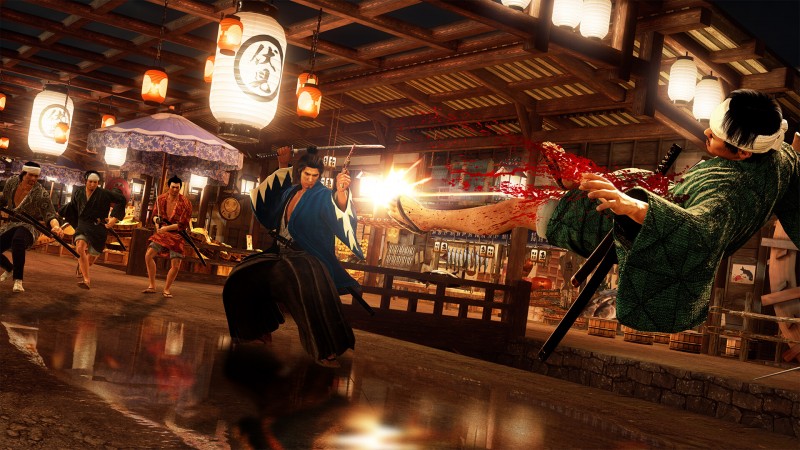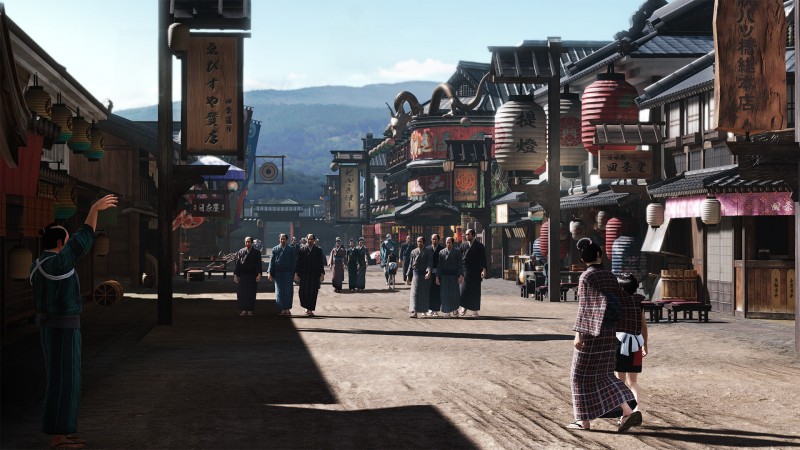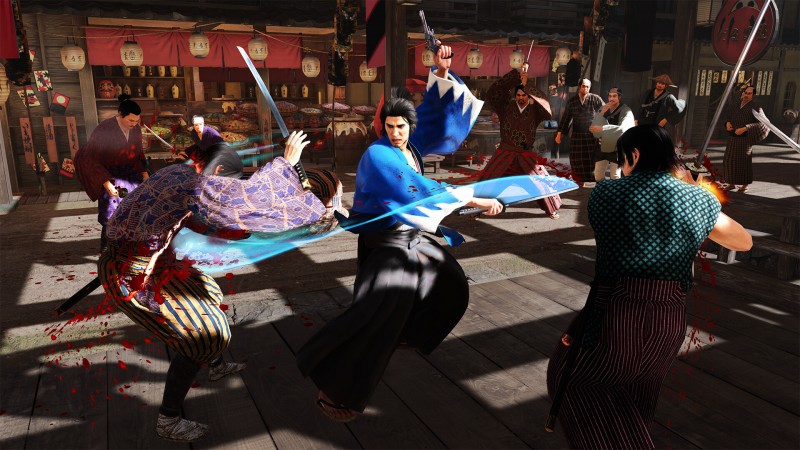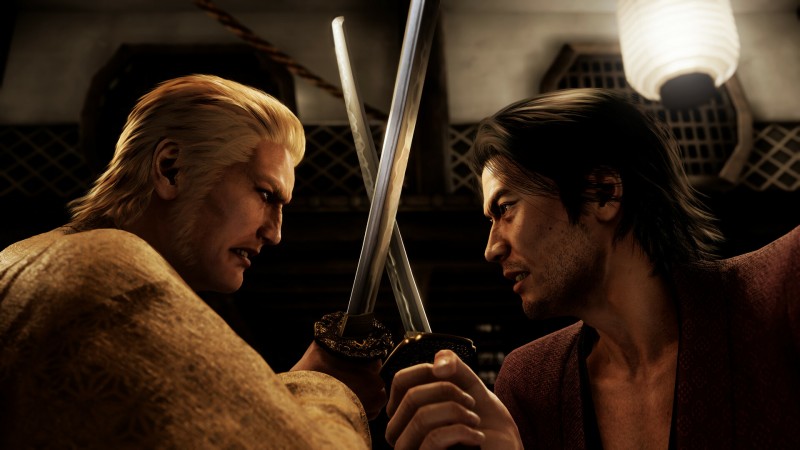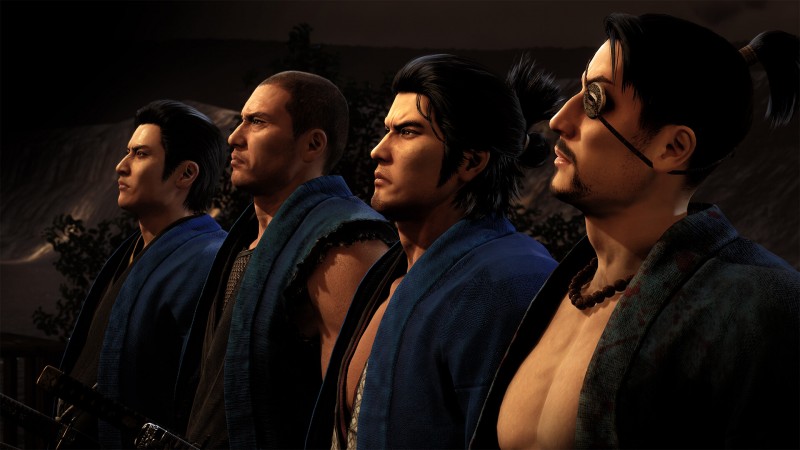

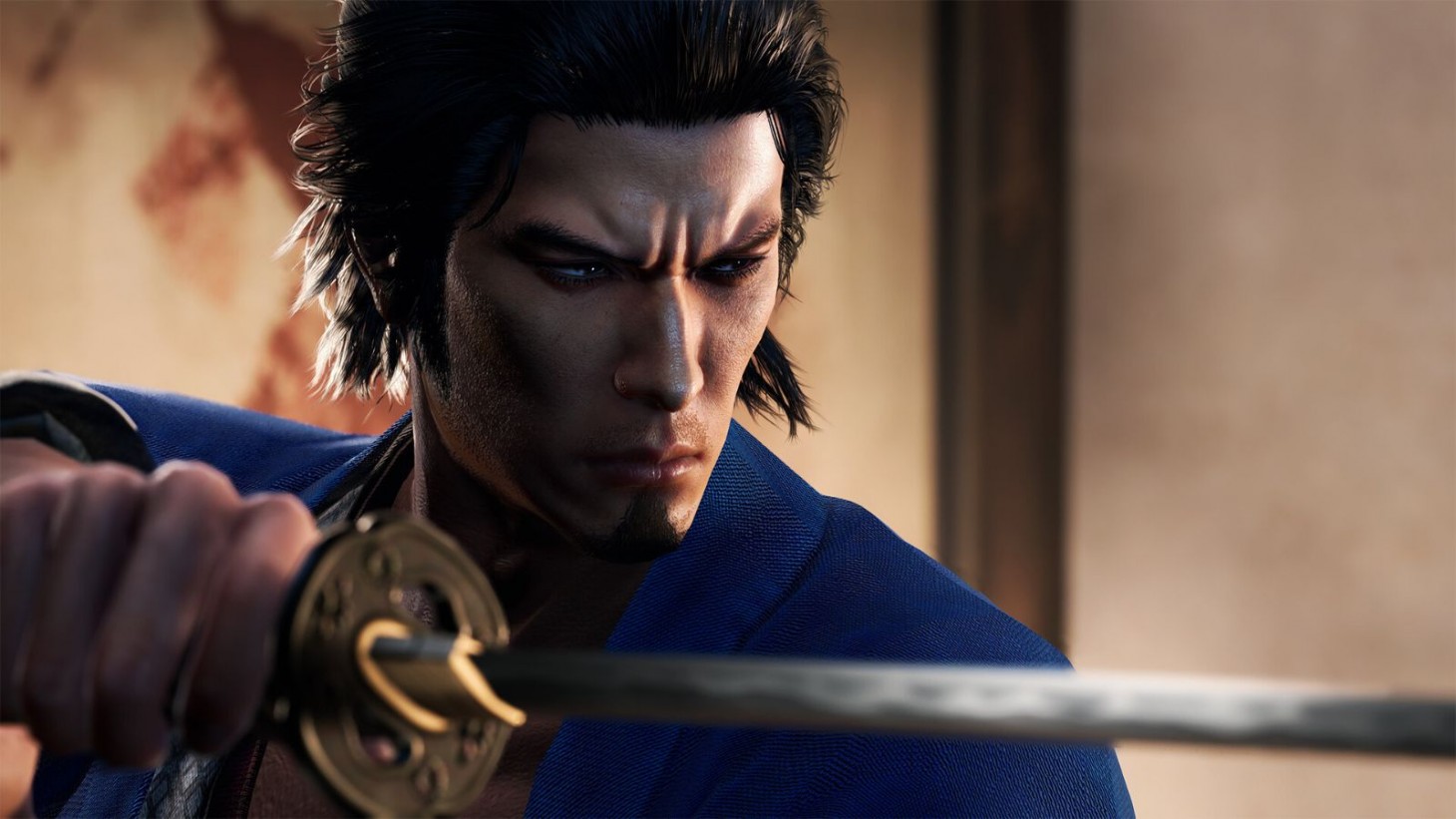
Like a Dragon: Ishin is not a new game. It's a remake of an old game – 2014's Ryu Ga Gotoku: Ishin, released only in Japan on the PS3 and PS4. And yet, despite the age of its skeleton, in some ways, the game stands out as one of the more impressive games in developer Ryu Ga Gotoku's (RGG) portfolio – even with a few noticeable weak points.
Ishin takes place in the 1860s, at the end of Japan's Edo period. You play as Sakamoto Ryoma – a real-life historical figure – who, amid his own revenge scheme, finds himself embroiled in the tumultuous socio-political climate of the era. Using the fake alias Saitō Hajime, Sakamoto infiltrates the Shinsengumi, a police force organized to help control Kyoto at this time, searching for the killer of his adopted father. But of course, as these things go, Ryoma ends up in the middle of a much larger plot, impressively finding time to both seek out his revenge and effect great change to the country's entire political system – as one does.
It's a gripping drama, if an unwieldy one at times. Ishin's cast uses the faces and personalities of Yakuza mainstay characters to represent its actual historical figures. For example, Ryoma is series protagonist Kazuma Kiryu, but there's also Goro Majima, Taiga Saejima, and even a few newer characters I won't spoil here. These familiar faces helped me instantly adhere – or despise – characters, as I was already used to their personality traits; I quickly became devoted to alliances, individuals, and plot threads before they even picked up steam. Ishin is also one of the better-written RGG games, with impressively directed cutscenes – some of the best in the studio’s catalog – that always kept me engaged. Takaya Kuroda's performance as Ryoma is excellent as always, and it's great seeing Riki Takeuchi ( Dead or Alive , His Motorbike, Her Island ), Hitoshi Ozawa ( Gozu , Boiling Point ), and Hideo Nakano (the Outrage series) back in an RGG game after their fantastic roles in Yakuza 0.

On the other hand, keeping track of Ishin's ever-twisting story is, at times, like trying to balance 100 spinning plates on just two hands. There is a somewhat-helpful glossary, but even then, the game expects you to have at least a cursory knowledge of about 100 years of Japanese history on top of following RGG's trademark complex narratives. It's a lot. And I don't particularly like the ending, which, without spoilers, gets uncharacteristically meta with a curious message.
Ishin's historical setting creates one of the best open worlds in the series. Taking place in Kyo (modern-day Kyoto), a meticulous amount of detail brings the 1860s to life. I often strolled around the world in first-person, marveling at the sprawling shopping and drinking areas, quiet suburban communities, and twisting back alleys. That said, the game's never-ending supply of substories and sidequests often make those peaceful journeys a headache.
Like in other RGG games, substories automatically play when you're close enough to the mission-giver – whether you want them to or not. Luckily, you only have to sit through the introductory cutscenes and not play the entire quest until you want to. I understand these are most people's favorite parts of the Yakuza games, but, as I always do, I found it incredibly annoying being sometimes stopped five or more times on my way to one nearby location so every side quest in the area could play out. That's not to say the substories aren't good; they are. I especially enjoyed Ishin's slice-of-life minigames, where you share a house with Haruka, tending crops, learning cooking, raising animals, and so on. I love my little house and wish I lived there instead of in Minneapolis.
Combat, of course, makes up the vast majority of Ishin's gameplay, and for the most part, it's great, reverting back to the active combat of RGG games before 2020's Yakuza: Like a Dragon's turn-based gameplay. Ryoma is a master swordsman but also proficient with guns and hand-to-hand fighting. You have four fighting styles, each with its strengths, weaknesses, and skill trees, and I like switching between the four continuously mid-combat. I'd often start with the fast-paced sword and gun stance for quick damage and crowd control. I'd then switch to the more deliberate swordsman fighting style for massive damage to singled-out enemies. And occasionally, I'd move to a gun-only stance to damage far-away targets. It's not perfect – the camera often works against you in cramped areas, too many enemies hit you from behind when you're not looking, and one late-game setpiece level is frustratingly annoying – but when it works, Ishin's combat is greatly satisfying.
The game also has a card system allowing for special moves. These are acquired by recruiting new members – including some familiar faces – to the Shinsengumi, either through the open world or through the mostly-boring dungeon-crawling side content. Four can be attached to each fighting style, meaning 16 in total. Two personal favorites include the always practical ability to heal large portions of my HP bar and a lightning attack that targets every enemy in the immediate area. Combing the fighting styles with the series' heat moves (cinematic finishers) and the new special moves all in one encounter is fun, even if recruiting new soldiers is often tedious.
Like a Dragon: Ishin is an awesome spin-off to an already-great series, and one I'm glad finally came to the States. Even if it tripped on the landing, the story kept me gripped, and I hope some of the new combat styles and special moves make their way to other RGG games. I also hope we'll get the other spin-offs that never made their way over. Time will tell, but for now, it's nice to be back with my favorite criminals.
